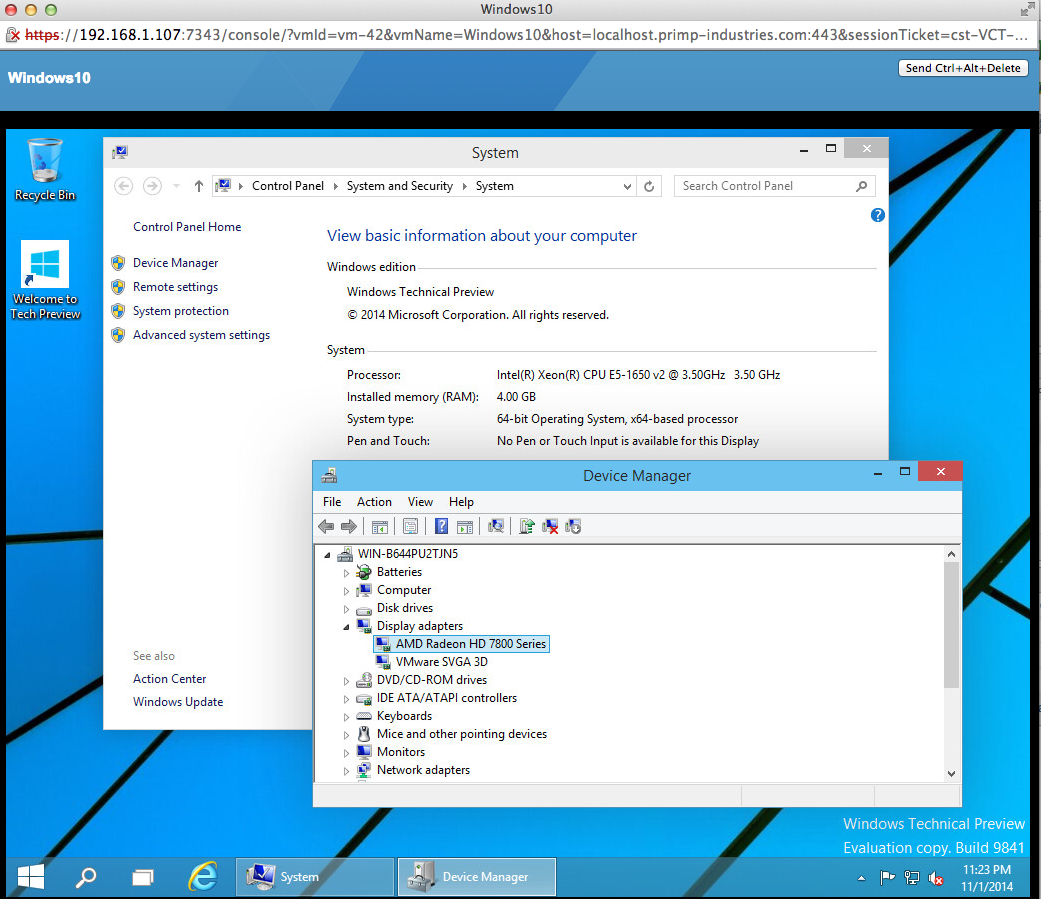Install Esxi On Mac Pro
Anyone successfully (and recently) were able to install VMware vSphere ESXi as per VMware HCL?
Apr 11, 2016 By having ESXi installed on a Mac Pro, you are able to install OS X virtual machines without requiring the VMware Unlocker workaround. Additionally, with four PCI-e slots, you could add things like Fibre Channel HBAs, multi-port NICs, USB 3.0 cards, etc. The downside to using a Mac Pro 1,1 or 2,1 today, though, is its power usage and heat output. Time to move on and install ESXi on the Mac Pro. Shutdown the Mac and insert the USB Disk in a USB port. Turn the power on whilest pressing the Option (Alt) key. In the list of bootable volumes you should see an external boot device with the name EFI. Select this device and start the installation. In my case it was a Next, Next.
Esxi Mac Mini

Install Esxi On Mac Pro 1.1
I was not successful even though blogger and Apple enthusiast William Lam from VMware has done so on both MacMini and Mac Pro models (the Mac Pro being the only supported model officially by either organization). When I get almost through the install, it then fails with a message that there are 'No Network Adapters'.
dmesg or lspci indicate that there are indeed BCM577XX NIC's present. I even tried my old Thunderbolt 2 gigabit ethernet adapter and it doesn't work. Almost seems that Apple has done it again with changing EFI which is newer than what is published as compatible. Apple engineering, you guys really need to get both this and OpenCL passthrough drivers to VMware. After all, wouldn't it be in your best interest anyway since we only want to be able to run multiple OS, including two of yours legally at the same time per EULA?
Fusion does not fit my needs, otherwise this trashcan is literally - just a trash can.
Posted on
This tool just not visualize over Pictures it also provides a learning experience through Audio and Text and videos. Rosetta stone v3 german iso.
For the past 6 years, the Apple Mac Mini has been one of the most popular hardware platforms for Virtualizing MacOS running on VMware vSphere enabling our customers to develop and build iOS and MacOS applications. With that said, VMware has historically only supported two Apple hardware platforms: Xserve (now EOL’d) and the Mac Pro (6,1) which is officially listed on VMware’s Hardware Compatibility list and this has been officially supported by VMware since 2012 when we first introduced support for MacOS Virtualization with the vSphere 5.0 release.
As many of you know, I have been a huge advocate of this platform for a number of years now and I have been working with various Engineers over the years to ensure that we have the exact same user experience when working with ESXi on the Mac Mini as you do with the Mac Pro. I still recall in the early days where it took several “hacks” to get ESXi to successfully boot and install.
Today, ESXi installs on the Mac Mini just like any other x86 platform. It runs amazing well for our customers, especially for a consumer device, who have deployed them in their data centers ranging from a couple hundred to several thousands for some of our larger Enterprise customers, one such example is MacStadium, the largest Apple Infrastructure-as-a-service provider which many of the Fortune 100/500 companies are leveraging to provide them with a platform to build and develop for the Apple eco-system.
However, one request that we frequently hear from our customers is when can VMware officially support the Mac Mini and have it listed on the HCL? Today, I am happy to announce that the Apple Mac Mini 6,2 (Late 2012) and the Apple Mac Mini 7,1 (Late 2014) is now officially supported by VMware and has been listed on the VMware HCL for latest release of ESXi 6.7 Update 2! One important thing to note is that the Apple Mac Mini is not an Enterprise-class hardware platform and as such, the hardware may be less reliable than what you are normally used to. To ensure customers have the best possible support experience, VMware has published KB71142 which customers should review prior to calling VMware Support.
I hope this welcome news clearly demonstrates VMware’s continued commitment and support to all of our existing and future customers who have a need to virtualize Apple MacOS and vSphere is definitely the platform to run this and any other workload on!
Note: I know many of you have been anxiously waiting for ESXi to be fully functional on the latest Apple Mac Mini (2018), unfortunately I do not have any news to share with you on that front. Without help from Apple, we are still challenged with Apple’s new T2 chip, which prevents us from accessing the underlying NVMe device, the SMC to enable MacOS Guest to boot along with other I/O devices such as the Thunderbolt 3 ports which also prevents access to external storage.



